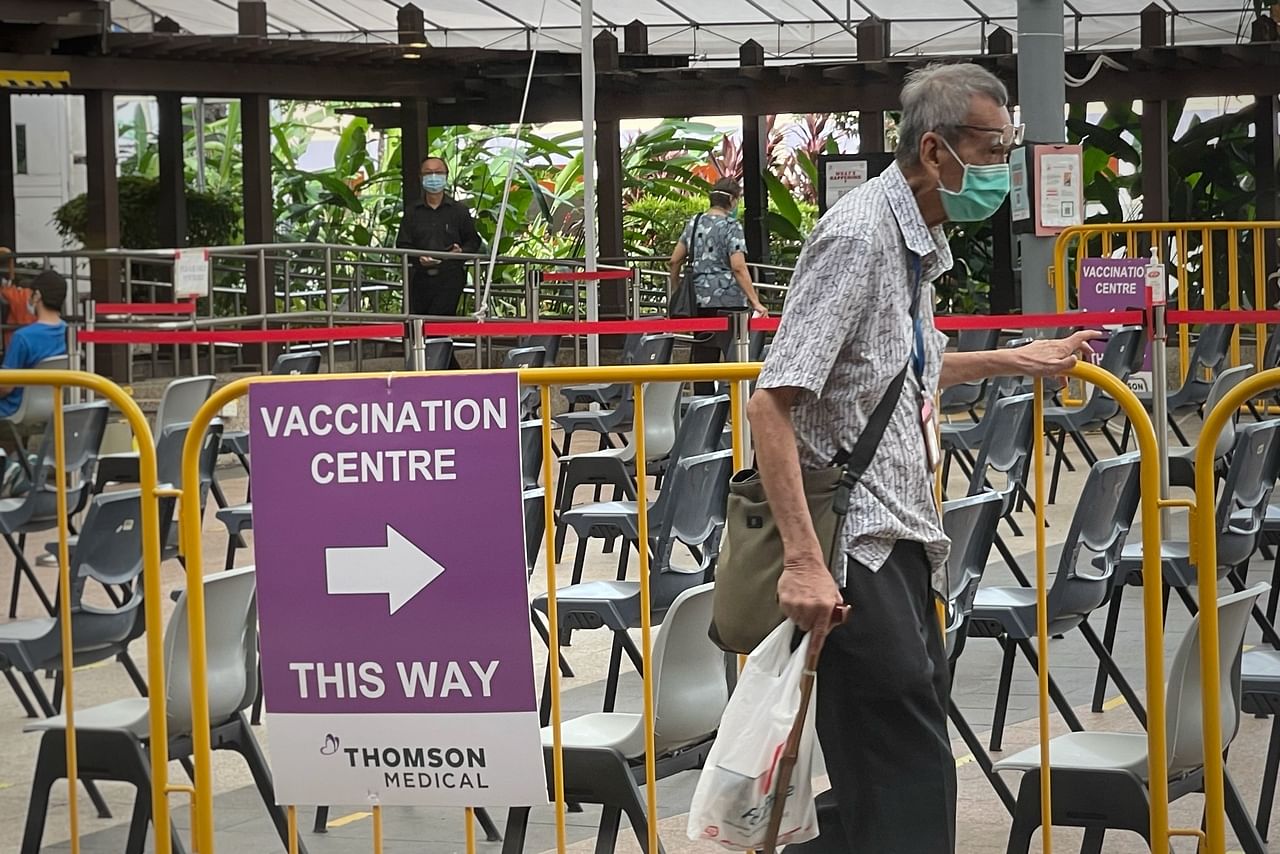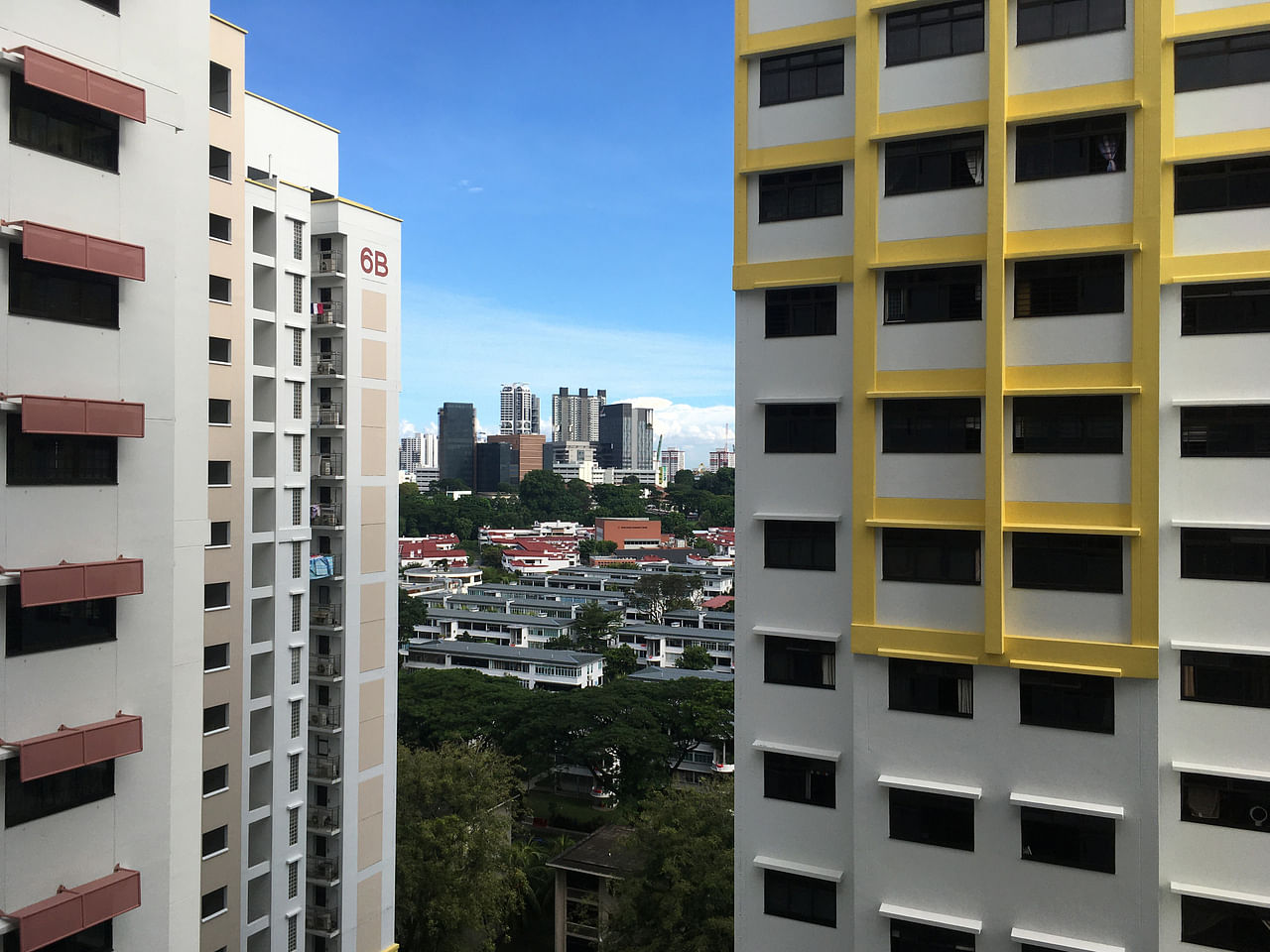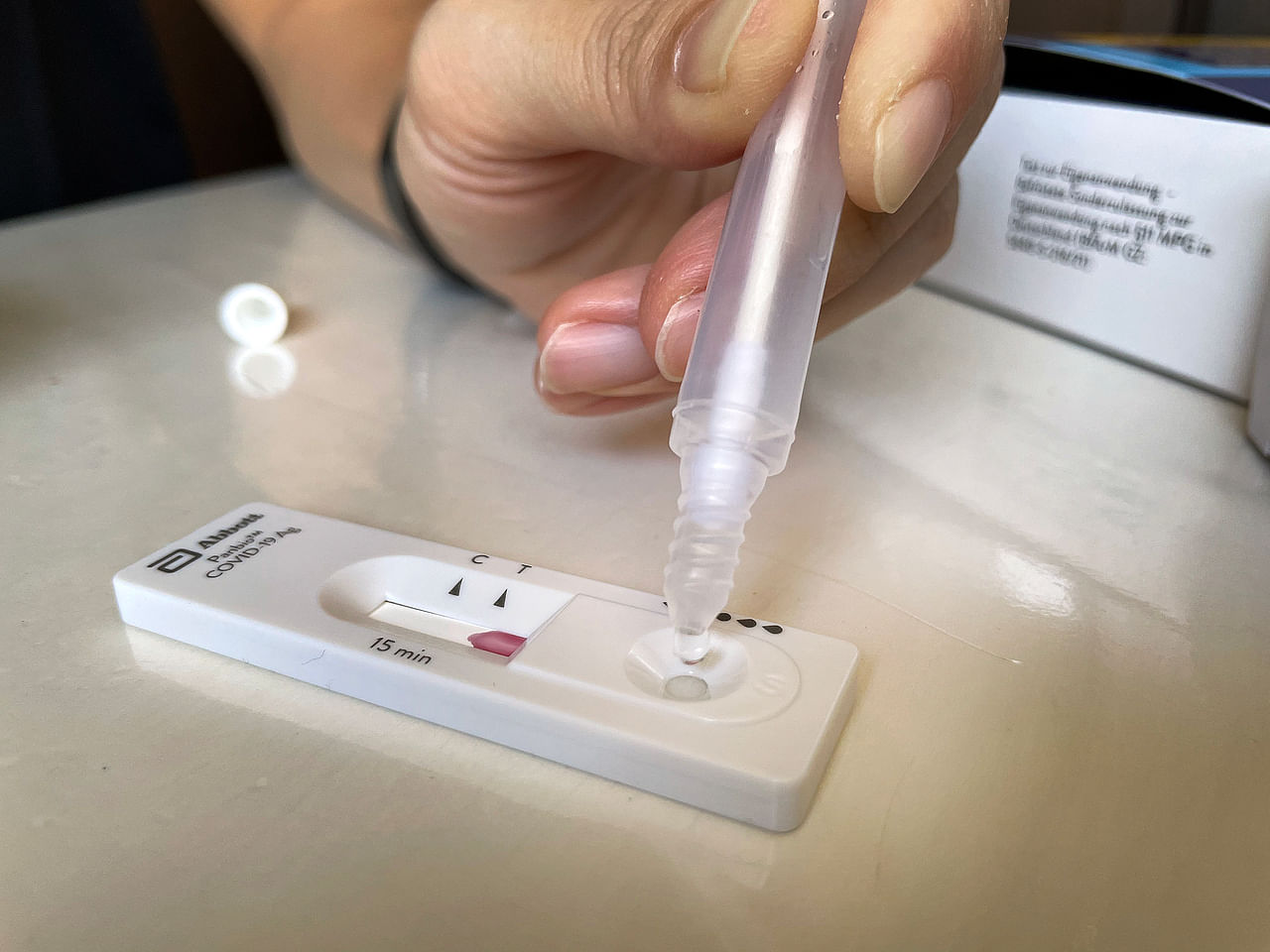It apoears that you were one of the first few individuals to become aware of that high number of new infections, early on Oct 5, 2021.Serious
-
IP addresses are NOT logged in this forum so there's no point asking. Please note that this forum is full of homophobes, racists, lunatics, schizophrenics & absolute nut jobs with a smattering of geniuses, Chinese chauvinists, Moderate Muslims and last but not least a couple of "know-it-alls" constantly sprouting their dubious wisdom. If you believe that content generated by unsavory characters might cause you offense PLEASE LEAVE NOW! Sammyboy Admin and Staff are not responsible for your hurt feelings should you choose to read any of the content here. The OTHER forum is HERE so please stop asking.
You are using an out of date browser. It may not display this or other websites correctly.
You should upgrade or use an alternative browser.
You should upgrade or use an alternative browser.
[COVID-19 Virus] The Sinkies are fucked Thread.
- Thread starter zhihau
- Start date
Thank you.between anti vaxxers and vaxxers some die at a faster rate (6.9 patients a day) while others die at a slower rate (0.69 patients a week). got to get the message across to sinkies who only understand singlish.
Enjoy your day.
- Joined
- Apr 15, 2016
- Messages
- 2,410
- Points
- 83
The death statistics today states :
Out of 9 deaths, 3 are unvaccinated ( 33%), 2 are partially vaccinated and 4 had been vaccinated. ( 67% ).
how many is death is moderna sinovac?
- Joined
- Apr 15, 2016
- Messages
- 2,410
- Points
- 83
we should have just vaccinated the 50 to 100 age group.for the rest..just let the virus run its course.
pull 80% of resources all for age 50 to 100
pull 80% of resources all for age 50 to 100
- Joined
- Sep 11, 2010
- Messages
- 38,255
- Points
- 113
Like I mentioned previously, the pap does not know what the fuck it is doing.
News analysis
A confused population cannot pull together to fight the Covid-19 pandemic

Salma Khalik
Senior Health Correspondent

- Updated
6 hours ago
But changes that happen too often can lead to confusion and poor adherence to rules - to the detriment of overall efforts to keep people safe.
Acknowledging this last week, Health Minister Ong Ye Kung said: "The protocols are many and complex to the man in the street, and to them, it's confusing and even frustrating.
"Few people truly understand or remember them. This issue needs to be addressed because if people don't understand, they can't do their part to exercise personal responsibility, much less help others."
But the confusion, I would argue, goes beyond just complex protocols or the use of too many "alphabet soup" acronyms.
Such confusion, especially in recent months, also applies to policies.
An anonymous doctor, who penned an opinion blog called hobbitsma, bemoaned how the lack of clarity from the Ministry of Health (MOH) stresses out healthcare workers, including its policy on vaccine booster shots that have left general practitioners bewildered.
In a post on Sept 27, the writer said: "On 14 Sept 21, GPs were informed by AIC that boosters can be given for those 60 and above if they had received their two doses at least six months (or 180 days) ago.
"On 17 Sept 21, this was revised to five months (or 150 days). That's fine. Then on 24 Sept 21, another (third) e-mail was sent by AIC (on behalf of MOH) to yet again change the criteria to 143 days and if the person had received an SMS from MOH to take their booster shot."
AIC is the Agency for Integrated Care, a corporate entity under MOH Holdings that acts as a centralised coordinator for help that seniors might need, such as getting a place in a nursing home.
Three different criteria on boosters disseminated within a two-week period does make one wonder about the decision-making behind this policy.
The writer also wondered about the odd figure of 143 days, and suggested that 150 days or five months would make life far easier for everyone.
If doctors are confused, how much more the general public, and on as important an issue as when to take a booster shot.
More to the point, when booster jabs were announced on Sept 10, the official word to the public was that they were for those 60 and above, and residents of aged-care facilities, "who have completed their vaccination regimen with two doses at least six months ago".

There has been no announcement on how the policy had been tweaked to a shorter interval of 150 days, let alone 143 days. This has led to confusion, as people have been getting invitations to register for their boosters even though they have yet to hit six months - the original policy - from their second jab.
This was compounded by a statement last Thursday (Sept 30) that people 60 years and older who completed their second dose on April 1, 2021, or earlier, may walk in without appointments for their booster jab from Oct 1 - that's still six months.
The policy on home recovery is another example.
Early in September, home recovery was for fully vaccinated people 50 years and younger who had no or mild symptoms, and provided they were not living with someone who is older than 80 or medically vulnerable, such as the immunocompromised or pregnant, and who have their own room with an attached bathroom/toilet.
CCF, HRA, RRT: Do you know what these Covid-19-related terms mean?
At home with Covid-19: My 10 days of recovering from the virus
Later in September, it was extended to people aged 69 years and younger, with all other conditions applying, except they now should "preferably" have an attached bathroom.The change was not surprising - and even understandable - given the rising number of infections, of whom more than 98 per cent were either asymptomatic or mildly sick. The devil, though, was in the details of this policy.
More than a million families live in HDB flats, of which around two in three are four-room or smaller. If one room and toilet/bathroom is set aside for the one infected person, how does the rest of the family manage?
And how many families have no vulnerable person, such as a pregnant woman, someone who is sick or over the age of 80 years, at home?

As Covid-19 continues to spread, home recovery will become the default, as it will be impossible to find enough places to house everyone, even if hotels and student hostels are roped in.
The criteria for home recovery needs to be aligned with what most people can manage.
For example, can someone who is asymptomatic share a toilet but limit the surfaces touched and properly clean them after use? Given how there are more than 130,000 people older than 80 in Singapore, should home recovery be allowed in all cases, so long as precautions are taken, such as everyone at home wearing a mask throughout the patient's 10-day recovery period?
askST: How to tell if you've been placed on the home recovery programme
Covid-19 testing regimes in Singapore explained
For a policy to work, it must work in practice.Associate Professor Hsu Li Yang, an infectious diseases expert at the National University of Singapore Saw Swee Hock School of Public Health, said: "Some policies such as home recovery had multiple clauses that were impracticable for a significant proportion - perhaps even a majority - of households with Covid-19 members, and lacked ground support for implementation to the extent that to call it an operational failure might be charitable."
Prof Hsu also pointed out that some contacts of Covid-19 patients had been contacted by MOH only eight to nine days after the encounter. This reveals a lack of preparedness, given how the authorities had themselves predicted a surge.
Requiring children below the age of 12 to be checked by a hospital doctor before being allowed to do home recovery adds work to an already stressed healthcare system, he added.

Another area of confusion has been the policy on what happens when someone tests positive for Covid-19.
Every household has been given antigen rapid test (ART) self-test kits, and a fair number of workplaces require regular testing using these kits.
Under current rules, if a person's ART result is positive twice, indicating he has been infected with Covid-19, he does not need to have a confirmatory polymerase chain reaction (PCR) test.
In fact, he does not even need to inform MOH that he has been infected. He just needs to stay home and repeat the ART test till it gives him a negative result, after which he may return to work and normal life.
This also means he is not part of the daily count of about 2,000 new infections that MOH has been reporting, which leads to the question: How accurate are those figures?
What to do if you have tested positive for Covid-19: 10 important steps
Covid-19 map put up as people want to know which places to avoid: Ong Ye Kung
If all the people with Covid-19 who discovered their infection through self-tests are not included - and we can assume that they are either not sick or only mildly so - then would the percentage of people who do not get seriously ill be actually higher than the 98.1 per cent released by MOH? How much higher? Are the numbers released even meaningful?Once the person gets a negative result, life returns to normal for him, as prescribed under the current policy. But MOH also says on its website that the ART has "potentially high false negative rate in individuals with low viral load".
So one negative test result could mean the person is still infectious. Yet the authorities have deemed it all right for him to resume life as normal. Wouldn't it be better if two negative tests are needed to give the all-clear?
A reader wrote in recently to say that his son's sergeant was confirmed to have Covid-19. Upon this, his son and all his platoon mates were made to take a PCR test then told to go home.
He asked why the platoon was sent home before the PCR test results were out, since this could inadvertently spread the disease to others, including vulnerable seniors like him at home. Wouldn't it have been better if the entire platoon was kept in camp and ring-fenced till the tests were out?
His comments made sense to me, given how these soldiers already stay in camp and could easily have been asked to remain there for a day or two more.
Also, why were these young men- likely to be asymptomatic even if they had caught Covid-19 - given PCR tests when others in Singapore who test positive with the less-accurate ART do not even need to inform MOH that they have been infected?
For 51-year-old who had Covid-19, recovery at home gave him needed confidence and support
What to do if you are a close contact of a Covid-19 case
Am I the only one confused by these rules and their inconsistent implementation?I'm sure I am not, since there are still workplaces and food outlets that close for 14 days because an employee had tested positive for Covid-19. They obviously have not heard that this is no longer necessary. What is clear: Simply announcing a rule change doesn't mean the message has got through.
Professor Dale Fisher, an infectious diseases specialist at the National University Hospital (NUH), said good communication "is easily the major challenge for any outbreak response".
He added: "If guidelines change every week, people and businesses won't keep up. Yes, we must be nimble but we also need to factor in the capacity to get the messages and activities to all corners of the population."
Agreeing, Professor Teo Yik Ying, dean of the NUS Saw Swee Hock School of Public Health, said: "Our communication strategies need to be consistent so the public know how to respond."
Instead, we are getting conflicting messages.
S'pore doing its best to scale up Covid-19 operations: PM Lee
Daily Covid-19 numbers should not blur the bigger picture and cause unintended pain
One last example: People are told that if they are fully vaccinated and healthy, an infection is unlikely to cause more than mild symptoms, which is in line with transiting to an endemic state.But cross signals come when places like Pasir Panjang market is closed - a move more aligned with an elimination strategy, pointed out Prof Teo.
A confused population cannot pull together to fight a pandemic.
Mr Ong has given the assurance that protocols will be simplified. Hopefully, the situation will be sorted out soon.
Correction note: An earlier version of the story said the Singapore Medical Association (SMA) runs the hobbitsma blog. The writer has clarified that the blog is independent of the SMA, although he was once a columnist of SMA's newsletter.
https://www.straitstimes.com/singap...tough-to-pull-together-against-a-common-enemy
- Joined
- Aug 10, 2008
- Messages
- 105,803
- Points
- 113
Keep in mind this Salma presstitute cunt from the 160th wrote this article not too long ago.
https://www.straitstimes.com/singap...n-mandatory-so-measures-can-ease-for-everyone
https://www.straitstimes.com/singap...n-mandatory-so-measures-can-ease-for-everyone
- Joined
- Mar 31, 2020
- Messages
- 9,153
- Points
- 113
3,577 new COVID cases in Singapore; 3 unvaccinated deaths
sg.news.yahoo.com
 SINGAPORE — The Ministry of Health (MOH) on Wednesday (6 October) confirmed a record 3,577 new COVID-19 cases in Singapore, bringing the country's total case count to 113,381, as well as three more deaths due to the disease.
SINGAPORE — The Ministry of Health (MOH) on Wednesday (6 October) confirmed a record 3,577 new COVID-19 cases in Singapore, bringing the country's total case count to 113,381, as well as three more deaths due to the disease.
Wednesday marks the second day in a row that Singapore reported over 3,000 new daily cases – it was reported a day before for the first time.
It is also the 15th day in a row with fatalities from the virus reported.
Singapore's 131st through 133rd COVID-19 fatalities are Singaporean women aged between 68 and 102. A total of 32 people have succumbed to the disease here this month.
Among the fatalities reported on Wednesday, the three women had been unvaccinated against COVID-19 and had various underlying medical conditions.
Of the new cases, 3,562 are local infections: 2,932 are in the community, while 630 are dormitory residents. Among the local cases are 664 people above the age of 60, said the MOH.
The remaining 15 cases are imported, of whom five were detected upon their arrival in Singapore, while 10 developed the illness during their stay-home notice or isolation period.
Health Minister Ong Ye Kung in Parliament on Monday said while the government is ramping up healthcare capacity to handle up to 5,000 cases, it is already planning how to handle 10,000 infections.
Co-chair of the multi-ministry COVID-19 taskforce Lawrence Wong last Saturday said many people in Singapore will end up catching COVID-19, and there is no need to be fearful or embarrassed about it.
But the Finance Minister also said the current rise in COVID cases may not be "the last wave" in Singapore.
This story will be updated later.
As of Wednesday, 1,520 cases are currently warded in hospital, most of whom are well and under observation.
There are currently 255 cases of serious illness requiring oxygen supplementation and 37 in critical condition in the intensive care unit (ICU).
Of those who have fallen very ill, 239 are patients above the age of 60, said the MOH.
Apart from the 133 patients who have died from COVID-19 complications, 15 others who tested positive for the virus were determined to have died from unrelated causes, including three whose deaths were attributed to a heart attack and another four whose deaths were attributed to coronary heart disease.
Over the last 28 days, the percentage of local cases who were asymptomatic or had mild symptoms is 98.3 per cent. Over the same period, 591 cases required oxygen supplementation, 58 had been in the ICU, and 71 died.
As of Tuesday, about 9.34 million doses of COVID-19 vaccines have been administered under the national vaccination programme. Some 4.6 million have received at least one dose of the vaccine, with some 4.53 million having completed the full vaccination regimen.
To date, about 600,000 eligible seniors have been invited to receive their booster doses – 341,427 of them have received their booster shots while another 99,000 have booked their appointments.
Separately, 205,430 doses of other vaccines recognised in the World Health Organization’s Emergency Use Listing (WHO EUL) have been administered as of Tuesday, covering 107,523 individuals.
This means that 83 per cent of the population have completed their full regimen, or received two doses of COVID-19 vaccines, and 85 per cent have received at least one dose.
sg.news.yahoo.com
Wednesday marks the second day in a row that Singapore reported over 3,000 new daily cases – it was reported a day before for the first time.
It is also the 15th day in a row with fatalities from the virus reported.
Singapore's 131st through 133rd COVID-19 fatalities are Singaporean women aged between 68 and 102. A total of 32 people have succumbed to the disease here this month.
Among the fatalities reported on Wednesday, the three women had been unvaccinated against COVID-19 and had various underlying medical conditions.
Of the new cases, 3,562 are local infections: 2,932 are in the community, while 630 are dormitory residents. Among the local cases are 664 people above the age of 60, said the MOH.
The remaining 15 cases are imported, of whom five were detected upon their arrival in Singapore, while 10 developed the illness during their stay-home notice or isolation period.
Health Minister Ong Ye Kung in Parliament on Monday said while the government is ramping up healthcare capacity to handle up to 5,000 cases, it is already planning how to handle 10,000 infections.
Co-chair of the multi-ministry COVID-19 taskforce Lawrence Wong last Saturday said many people in Singapore will end up catching COVID-19, and there is no need to be fearful or embarrassed about it.
But the Finance Minister also said the current rise in COVID cases may not be "the last wave" in Singapore.
This story will be updated later.
As of Wednesday, 1,520 cases are currently warded in hospital, most of whom are well and under observation.
There are currently 255 cases of serious illness requiring oxygen supplementation and 37 in critical condition in the intensive care unit (ICU).
Of those who have fallen very ill, 239 are patients above the age of 60, said the MOH.
Apart from the 133 patients who have died from COVID-19 complications, 15 others who tested positive for the virus were determined to have died from unrelated causes, including three whose deaths were attributed to a heart attack and another four whose deaths were attributed to coronary heart disease.
Over the last 28 days, the percentage of local cases who were asymptomatic or had mild symptoms is 98.3 per cent. Over the same period, 591 cases required oxygen supplementation, 58 had been in the ICU, and 71 died.
As of Tuesday, about 9.34 million doses of COVID-19 vaccines have been administered under the national vaccination programme. Some 4.6 million have received at least one dose of the vaccine, with some 4.53 million having completed the full vaccination regimen.
To date, about 600,000 eligible seniors have been invited to receive their booster doses – 341,427 of them have received their booster shots while another 99,000 have booked their appointments.
Separately, 205,430 doses of other vaccines recognised in the World Health Organization’s Emergency Use Listing (WHO EUL) have been administered as of Tuesday, covering 107,523 individuals.
This means that 83 per cent of the population have completed their full regimen, or received two doses of COVID-19 vaccines, and 85 per cent have received at least one dose.
Salma Khalik.....Keep in mind this Salma presstitute cunt from the 160th wrote this article not too long ago.
https://www.straitstimes.com/singap...n-mandatory-so-measures-can-ease-for-everyone
You go ask drs what they think of her.
@porcaputtana ?
- Joined
- Feb 21, 2015
- Messages
- 5,970
- Points
- 113
I am inured by the daily record cases.
If the data doesn't prompt the responsible party to act appropriately, it becomes meaningless. So what if it goes up to 5,000 or 10,000 some day ?
If the data doesn't prompt the responsible party to act appropriately, it becomes meaningless. So what if it goes up to 5,000 or 10,000 some day ?
- Joined
- Jun 17, 2020
- Messages
- 13,769
- Points
- 113
new record again. Everyday break record.
It looks like it is much higher than Toronto's reported just under 500 of new COVID infected cases yesterday.
Based on my observations, it appears that Torontonians are COVID fatigued, and indifferent now.
I believe that we should simply allow activities and work to return to the pre COVID days.
Based on my observations, it appears that Torontonians are COVID fatigued, and indifferent now.
I believe that we should simply allow activities and work to return to the pre COVID days.
It looks like it is much higher than Toronto's reported just under 500 of new COVID infected cases yesterday.
Based on my observations, it appears that Torontonians are COVID fatigued, and indifferent now.
I believe that we should simply allow activities and work to return to the pre COVID days.
Alberta has been averaging about 1500 cases a day for a few weeks now.
But yesterday was only 633.
Singapore's numbers are way off the chart man!
Similar threads
- Replies
- 3
- Views
- 169
- Replies
- 2
- Views
- 234
- Replies
- 5
- Views
- 561
- Replies
- 0
- Views
- 229



